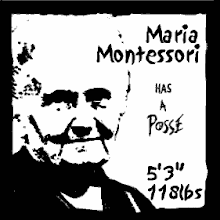ideas into obscurity
When I was an undergraduate at the University, I spent a good amount of time pacing the serpentine shelves full of books labeled with library of congress call letters L-LD. Books about Montessori, books about community education, books about the psychology and sociology of learning.
When I first discovered these open stacks, I felt thrilled to be surrounded by a physical representation of the accumulated knowledge of our society's systems of teaching and learning. However, as the months and years of my schooling began to pass, my extracurricular readings barely scratched the surface of what was available on the shelves.
Curious one day, I began to pull books off the shelf at random, checking the back cover to see the date that the book was last checked out. For some, it was never, some 20 years ago and very few in the last five years. Of course, some folks were like me, reading classroom ethnographies AT the library, rather than at home.
Soon, a quiet, painful little thought began to eat away at me as I sat writing papers. These books represented the innovative thoughts of people that truly cared about teaching and learning. Bold folks who believed in an idea -- leaders, educators, intellectuals. These books were the work of authors who spent nights and weekends revising chapters, searching archives, tape recording interviews. Some of these books surely represent a life's work. A life's work -- shelves full of them.
The question is, what does a life's work mean if it was only important enough for one person to ever move it from the confines of the library? What does a book mean if no one reads it? What does a call to action mean if no one takes action?
Surely, the act of writing a book fulfills the purpose of the author. It brings satisfaction to the author, probably just to know that and ideas explained. From experience, I know there is great clarity at the end of the writing process. But, what does it mean when there are 500 books and 5,000 journal articles about the best way to structure high school education? What does it mean when 450 of those books are no longer being read?
Those 450 books are still there on the shelf. Tightly bound, closely shelved and gathering dust. Ashes to ashes...
Labels: academia

